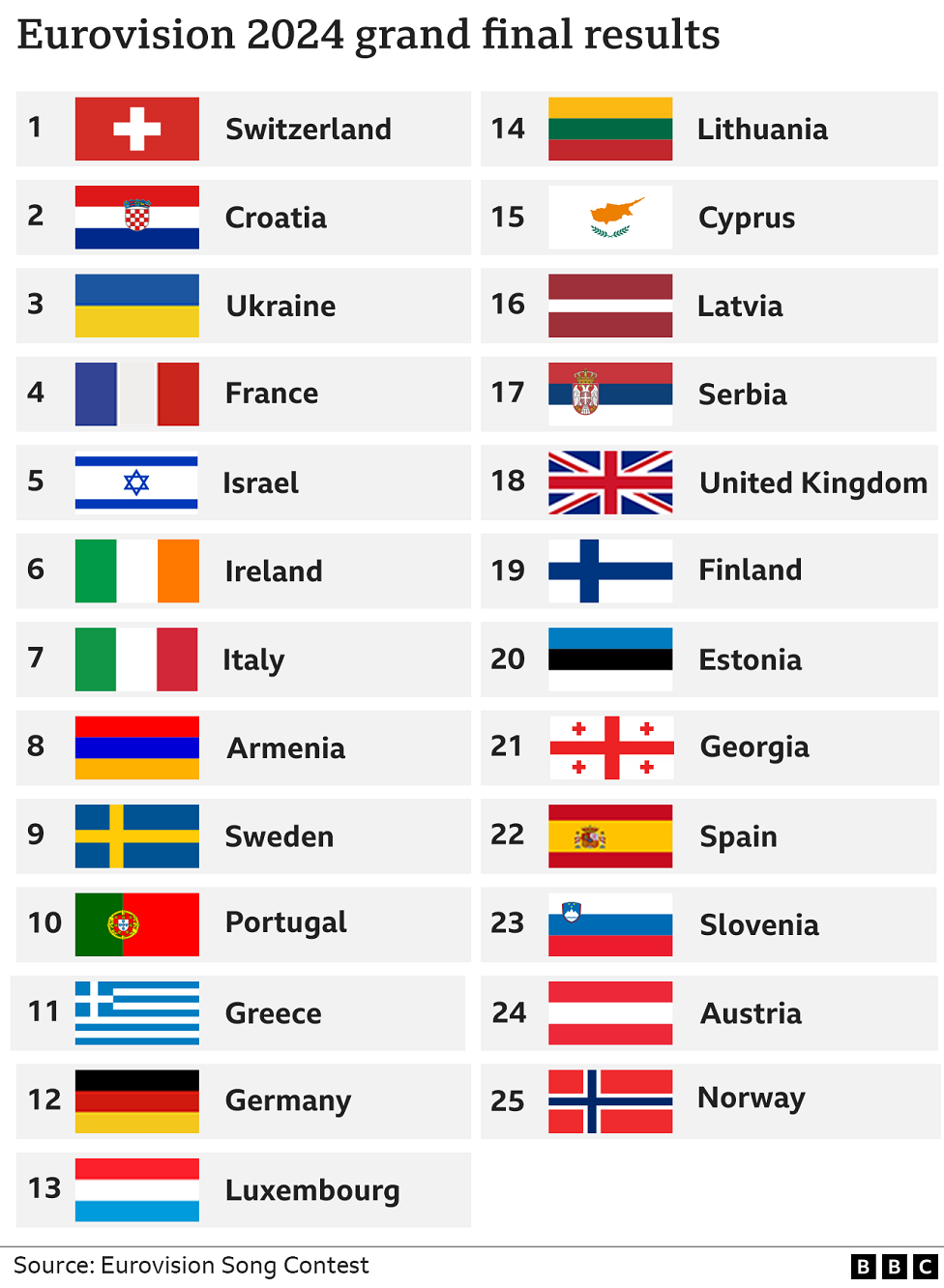Switzerland's Nemo wins Eurovision as UK comes 18th
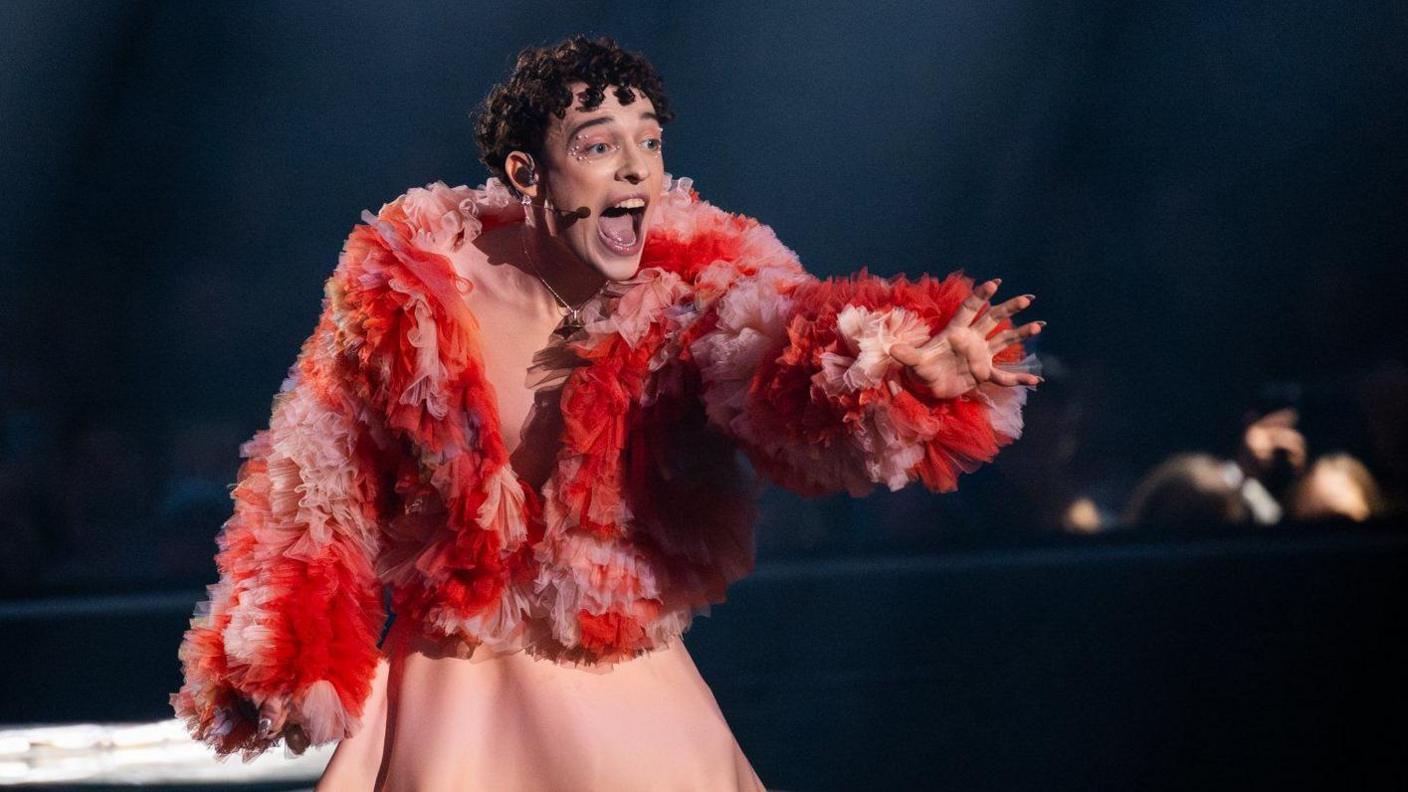
Nemo topped the jury vote
- Published
Swiss singer Nemo has won the Eurovision Song Contest in Sweden, with their song The Code.
A compelling hybrid of opera and hip-hop, it topped the jury vote, helping the 24-year-old gain an impressive score of 591 points.
The singer becomes the first non-binary artist to win Eurovision. Fittingly, they wrote the song to explain how they came to terms with their identity.
Croatia, which led the public vote, came second with the raucous party anthem Rim Tim Tagi Dim, while the UK's Olly Alexander was consigned to 18th place, out of 25.
The Years and Years singer received the dreaded "nul points" from the public, but was saved from last place by the jury vote.
They awarded his song, Dizzy, 46 points.
This year's contest was overshadowed by protests over Israel's participation, amid the ongoing Israel-Gaza war.
Israel's entrant, the 20-year-old singer Eden Golan, who received a mixture of boos and cheers as she performed on stage in Malmö, came fifth.
In their victory speech on stage, Nemo said: "I hope this contest can live up to its promise and continue to stand for peace and dignity for every person in this world."
They later broke the contest's infamous crystal microphone trophy, which appeared to fall to the stage as they waved it around in triumph.
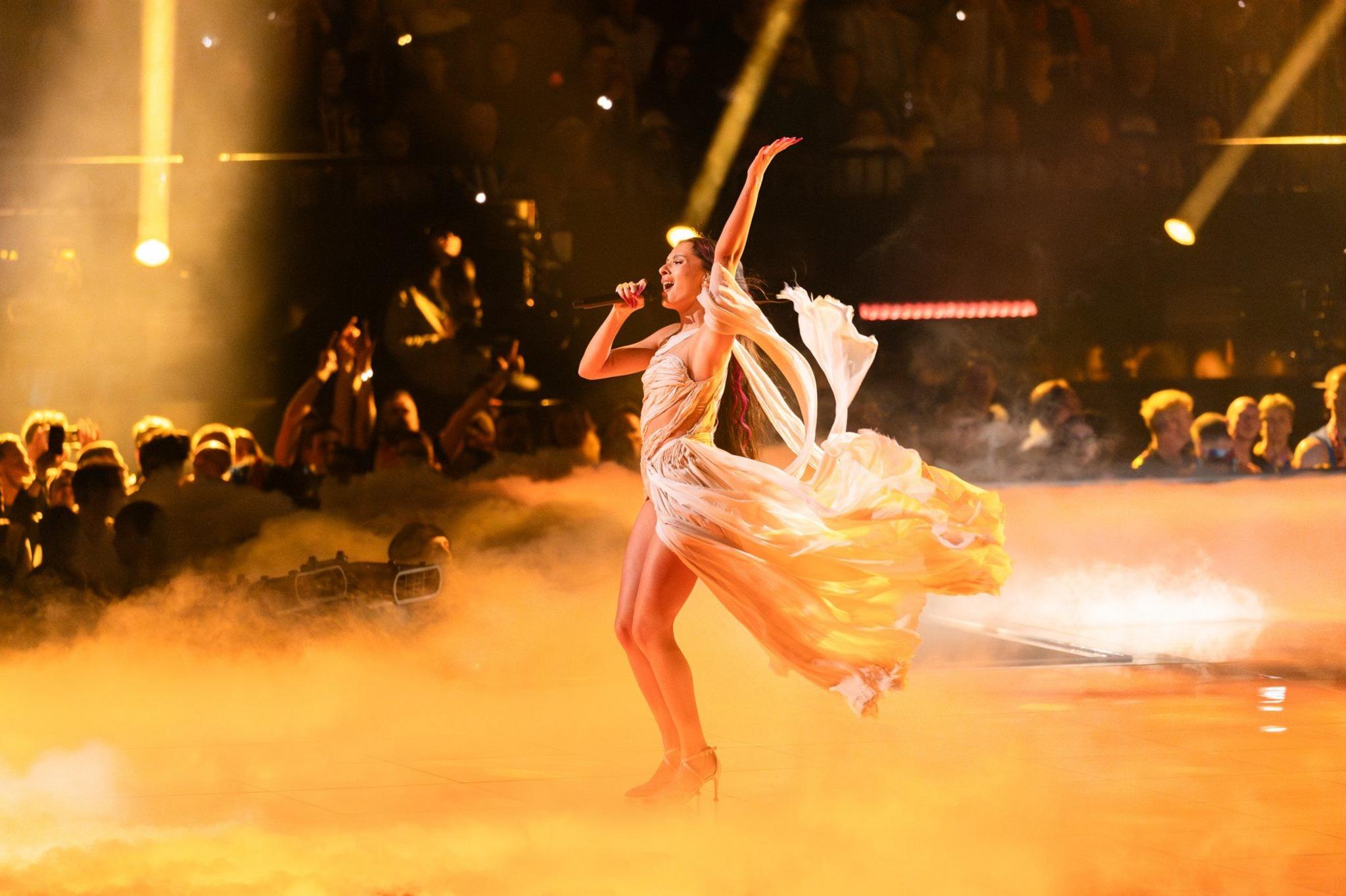
Eden Golan was protected by armed police throughout her preparations for Eurovision
Eurovision 2024: The top five contestants
Switzerland: Nemo - The Code
Croatia: Baby Lasagna - Rim Tim Tagi Dim
Ukraine: Alyona Alyona & Jerry Heil - Teresa and Maria
France: Slimane - Mon Amour
Israel: Eden Golan - Hurricane
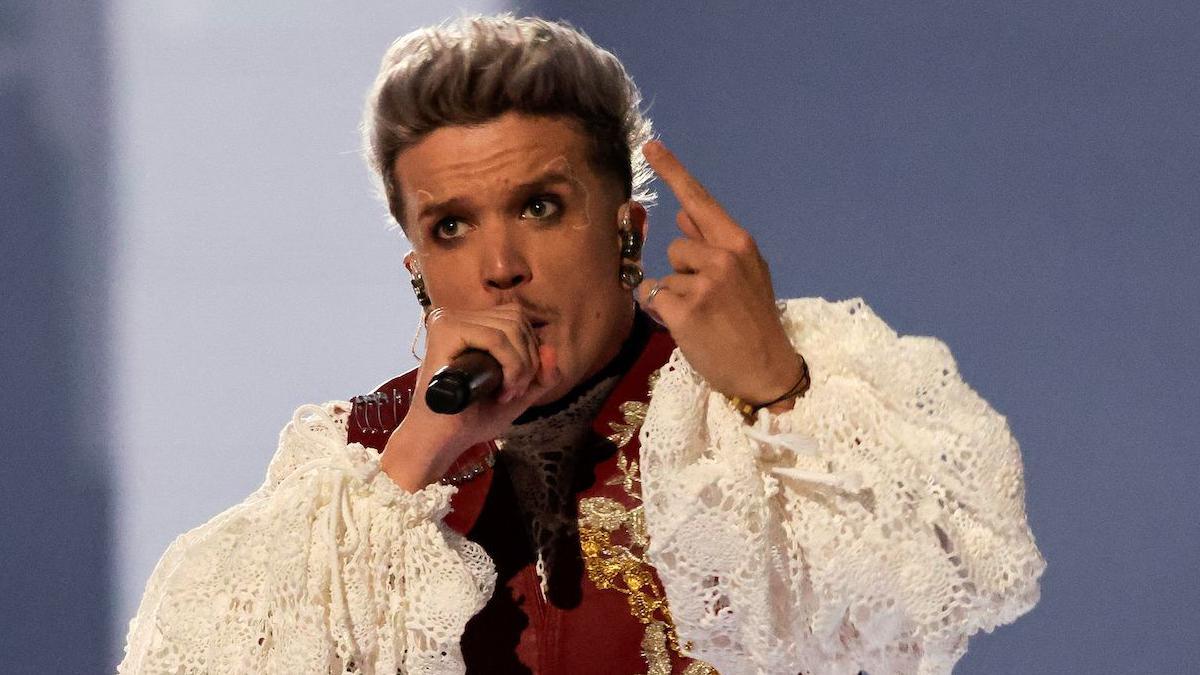
Baby Lasagna came second with the song Rim Tim Tagi Dim
Other artists voiced similar sentiments.
Bambie Thug, representing Ireland, screamed "love will triumph hate" as they finished their song, Doomsday Blue; while Portugal's contestant, Iolanda, told the crowd: "Peace will prevail."
Two former contestants, Alessandra Mele and Käärijä, pulled out of announcing their countries' jury scores; Mele cited Israel's participation as a factor, while Käärijä said "it doesn't feel right" (to give out points).
However, there was a swell of support for Golan's song, which came second in the public vote with a score of 323. The UK was one of 15 countries where the public gave the 20-year-old the maximum of 12 points.
Contestant disqualified
Adding to the drama, Dutch contestant Joost Klein was disqualified from the contest on Saturday, after he was accused of making "unlawful threats" to a female member of the production crew.
The singer was reported to police after the incident occurred backstage on Thursday. Organisers subsequently decided to exclude him from the contest, saying they had a "zero-tolerance policy towards inappropriate behaviour".
In a statement, Dutch broadcaster Avrotros called the decision "disproportionate" and said Klein had been filmed backstage when he had "repeatedly indicated" that he did not want to be.
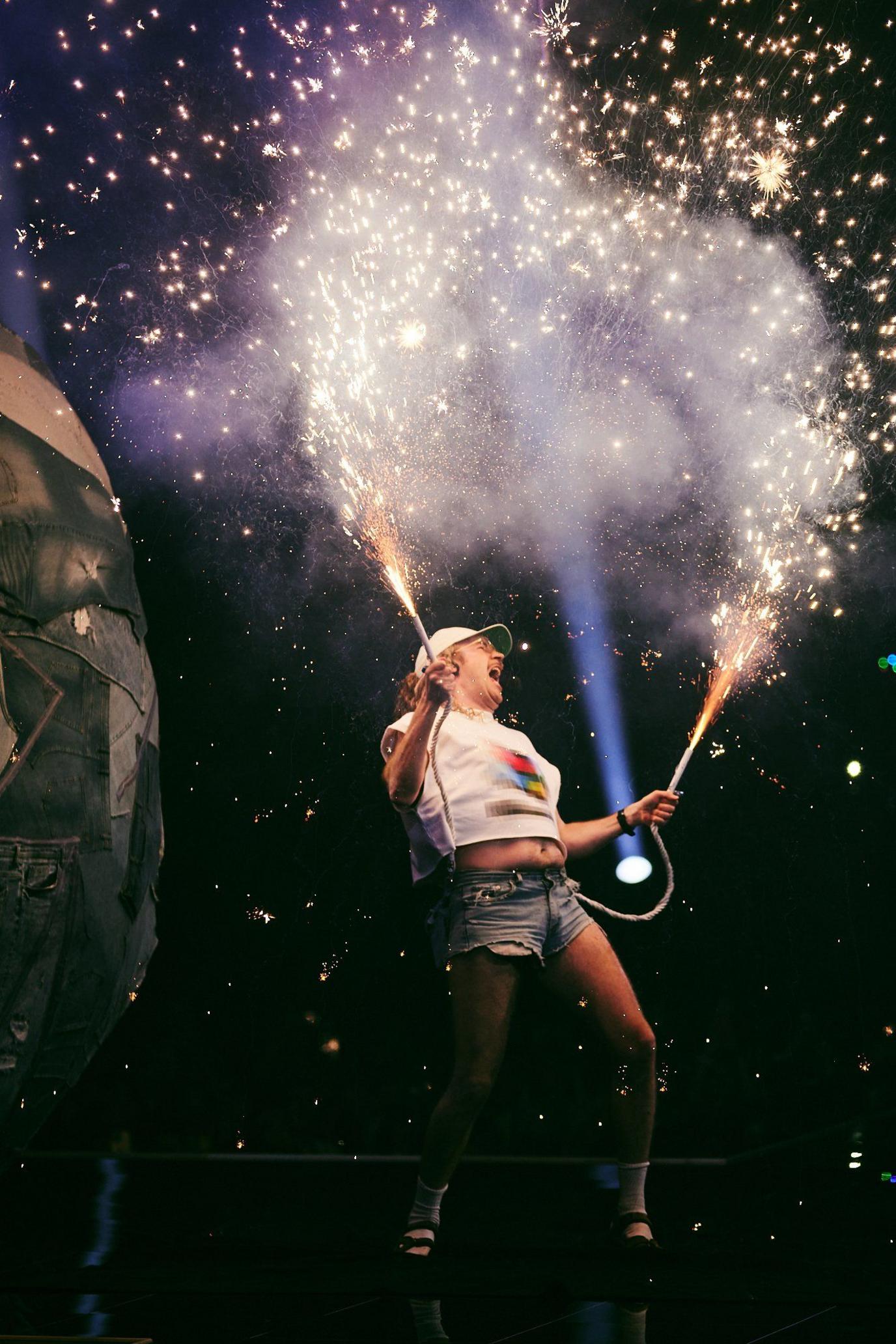
Elsewhere, Eurovision was Eurovision.
Finnish artist Windows95Man performed a 1990s house banger with his trousers off, and Croatia's Baby Lasagna sang about a country boy who sells his cow and moves to the big city.
Bambie Thug gave one of the night's most memorable performances.
The self-described "goth gremlin goblin witch” appeared on stage in a circle of candles, summoning a demon then dancing ballet with it, before screaming at the top of their lungs.
A hit with viewers, it ultimately took sixth place, with 278 points.
That makes it Ireland's best result in a quarter of a century.
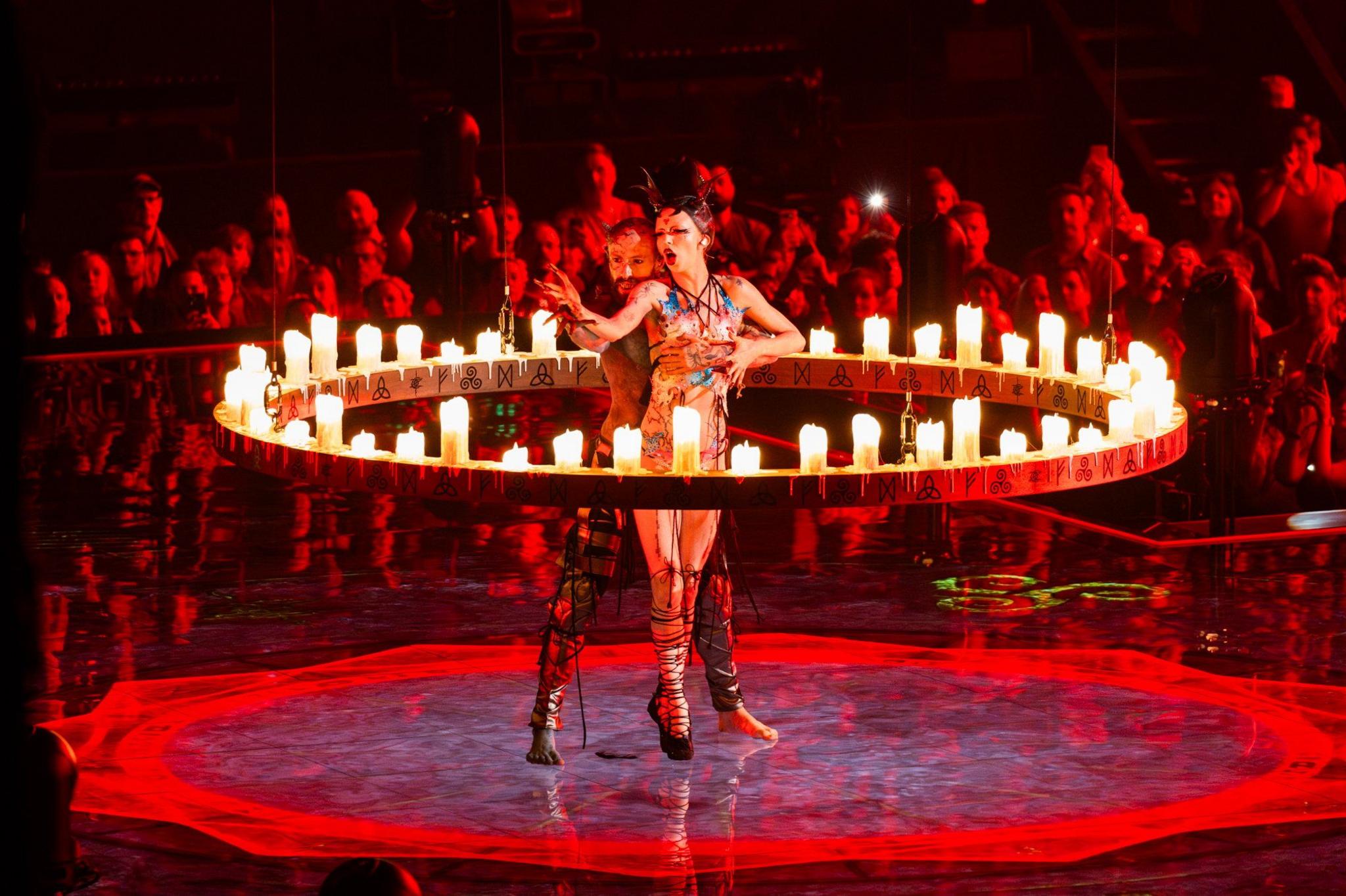
Abba tribute
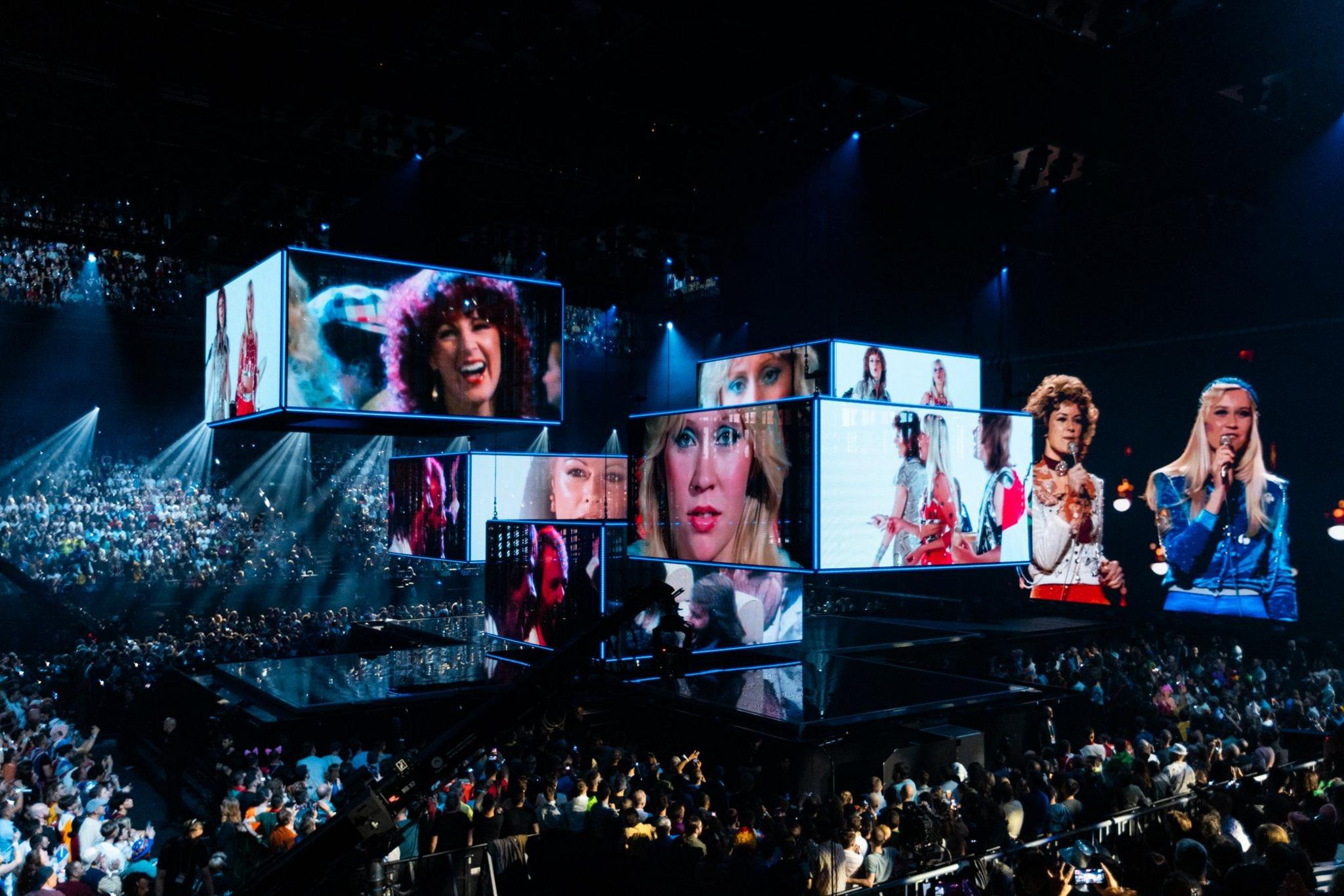
The 50th anniversary of Abba's Eurovision victory was marked during the interval
The contest was held in Sweden, exactly 50 years after Abba gave the country its first Eurovision win in 1974.
Rumours flew around Malmö that they would appear to mark their golden anniversary - even though the band themselves denied it.
In the end, they only appeared in a short video, in the form of their "abbatars" from the virtual Abba Voyage concerts in London.
The quartet briefly reminisced about the success of their song Waterloo, which was then performed by three other Eurovision winners: Charlotte Perelli (1999), Conchita Wurst (2014), and Carola (1992).
It was a bit of a let-down.
A more dynamic interval performance came from two-time Eurovision winner Loreen, who played her new single Forever in a futuristic, Barbarella-inspired set.
And Blue Swede frontman Björn Skifs opened the show with Hooked On A Feeling, the first ever Swedish song to reach number one in America.
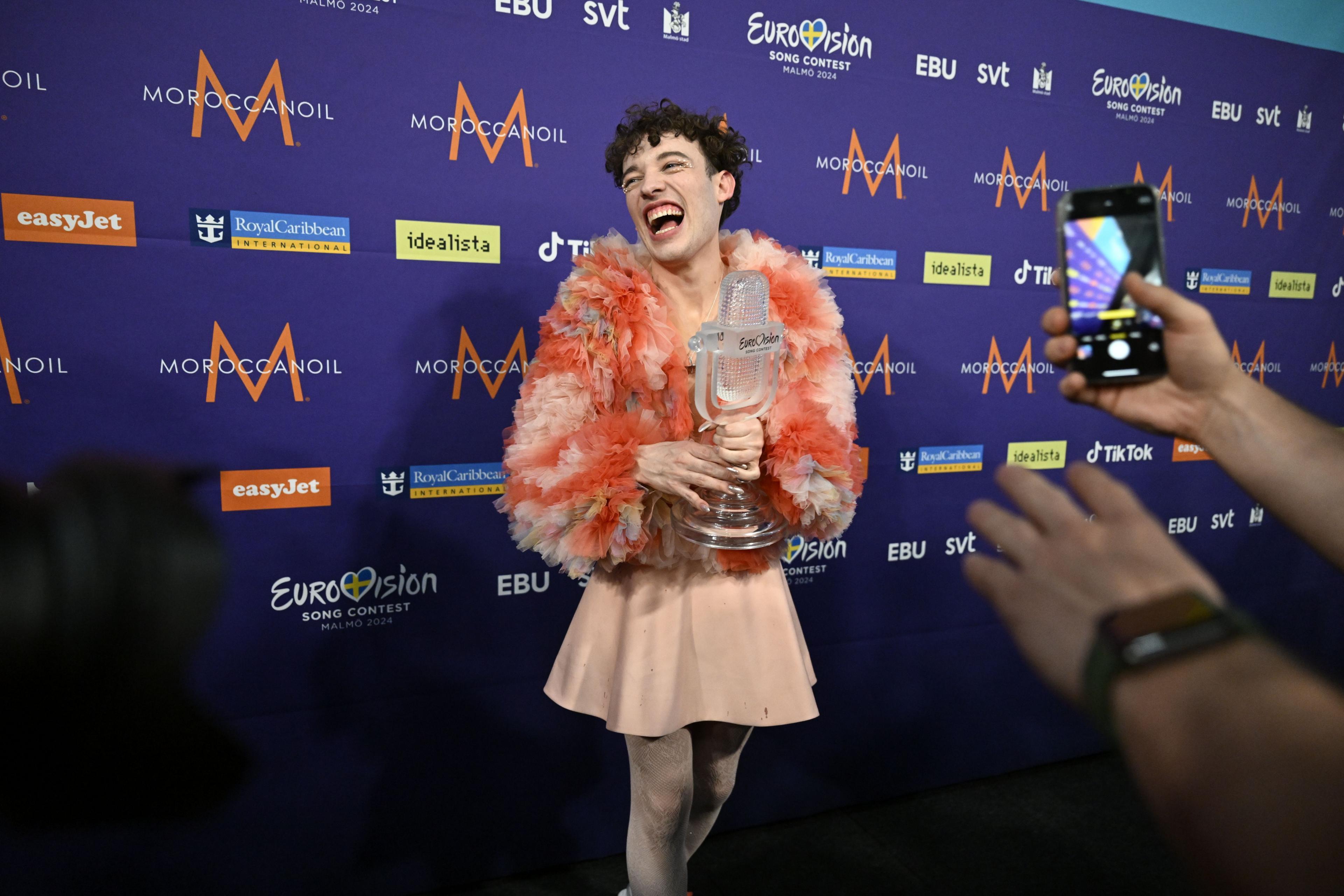
Nemo celebrates backstage at the Eurovision Song Contest
Nemo wowed audiences with their lithe and athletic performance, singing an operatic falsetto while balancing perilously on a spinning turntable.
Their song, The Code, was a deeply personal account of the struggle to accept their non-binary identity.
In the lyrics, they sang: "Somewhere between the zeroes and the ones / That's where I found my kingdom come."
The victory represents a big moment for the LGBTQ community which has, for a long time, treated Eurovision as a safe haven.
Last year's winner Loreen, who handed the crystal trophy to Nemo on Saturday, recently told the BBC how important that support had been to her.
"Eurovision is a community that has an acceptance for diversity [and] different ways of being.
"It's a very accepting and loving space. And it's us who are creating it, through creativity."
Bambie Thug, who is also non-binary, rushed over to Nemo after their victory and handed over a hand-crafted crown, which they wore for their final performance.
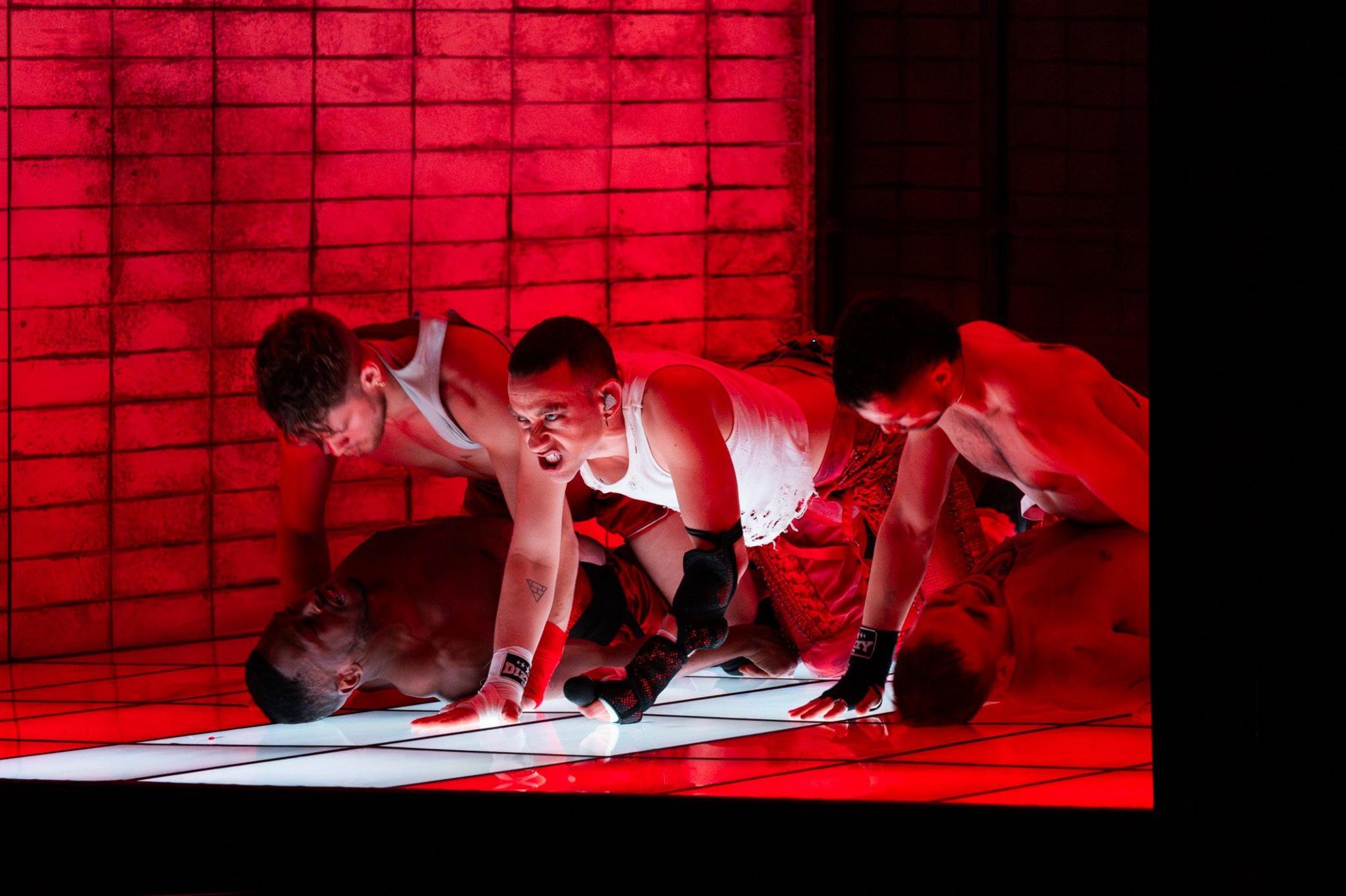
Pop star Olly Alexander represented the UK but was consigned to the bottom of the leader board
The UK improved on its performance last year, when Mae Muller came second-from-last, but was still relegated to the bottom half of the leaderboard.
Singer Olly Alexander, a chart-topping pop star with the band Years and Years, put on a spectacular performance, full of scantily-clad men dancing in a dystopian shower room.
But his live vocals were wobbly, and suffered by comparison to stronger performers from France, Portugal and Greece.
The star laughed off his zero-point score from the public, pretending to embrace television cameras as the results were announced.
